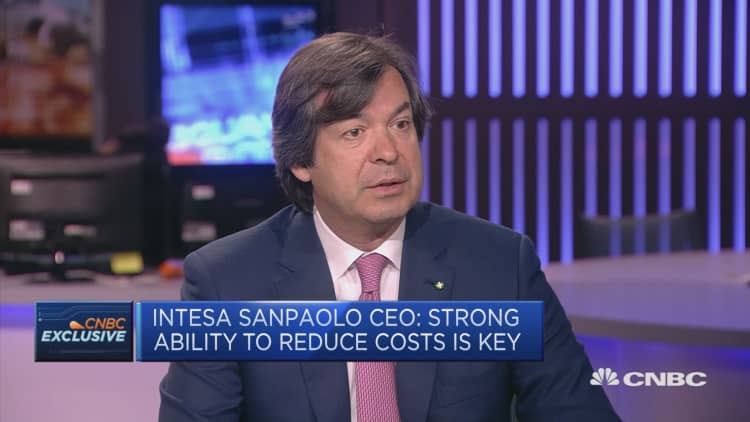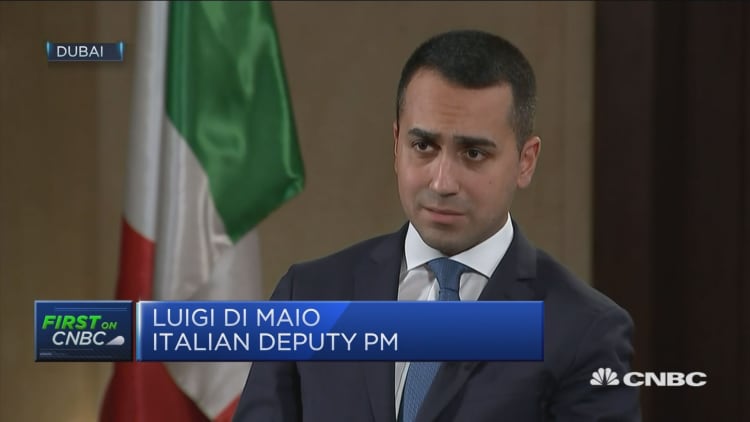
The anti-establishment and partly nationalist coalition in charge of Italy have slowly normalized the way they do politics since coming to power, the CEO of Intesa Sanpaolo told CNBC Wednesday.
The left-leaning Five Star Movement (M5S) and the right-wing Lega parties formed a coalition nearly a year ago, promising to break away from the traditional political system. However, the chief of one of Europe's biggest banks by market value, says these two parties are "becoming normal" in the way they do politics.
"All these parties change their attitude and their view on what they need to do for the country," Carlos Messina, CEO of Intesa Sanpaolo, told CNBC Wednesday.
"They completely change(d) their view on what they need to do, also the attitude towards the European Commission, towards Europe, they are becoming normal in the sense of what they want to do for the country," Messina told CNBC's "Squawk Box Europe."
Prior to the general election in March 2018, both parties seemingly displayed stronger commitments on certain policies. For instance, Lega led by Matteo Salvini used to argue that Italy should leave the euro zone, before softening that position as the election approached.
I don't think there could be any kind of populist risk in Europe coming from Italy.Carlos MessinaIntesa Sanpaolo CEO
The Five Star Movement also argued prior to the election that Italy should hold a referendum on its membership of the euro zone. As the voting day drew closer and with a change in the party's leadership, M5S began arguing that Italy needed to renegotiate some rules with the EU instead.
Nonetheless, both parties have kept a strong position toward the EU, including in matters related to migration. Deputy Prime Minister Luigi Di Maio threatened to veto the EU's next budget if the number of migrants arriving in Italy were not distributed across Europe. Salvini also declared Italian waters closed to NGO rescue vessels carrying migrants — raising the pressure on the EU to act.
More recently, Rome and Brussels seem to be locking horns over the government's spending plans. The Italian government has criticized the European Commission for raising concerns over Italy's deficit and debt levels. Rome said the institution's economic forecasts are "ungenerous" and "bogus."
Nonetheless, Messina told CNBC: "I don't think there could be any kind of populist risk in Europe coming from Italy."
European voters will head to the polls later this month to choose new representatives to the European Parliament. The vote is being seen as a key test between Euroskeptic and pro-EU parties.
"The European elections, in my view, will be something positive for the country, because they will avoid this fighting mode between (the Lega and the Five Star Movement) in order to compete for the election. Then they will start again to do and talk about what we need in the country," Messina told CNBC.



